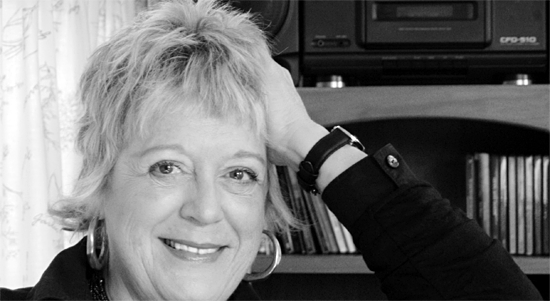

Health Advocate
Is Your A-Team in Place?
About finding the right doctors
I was lucky. I found the right doctors right away. Looking back, I realize how important it is to be confident that you’ve selected medical people who you really believe in, and who you are willing to trust with your life.
Fortunately I had lots of support from the start. Because I had just emigrated and was new in town, my best friend got to work. She knew the Chief Resident in Hematology/Oncology at Johns Hopkins Hospital, and had him ask fellow doctors and nurses just one question:
“If your wife, girlfriend, mother, or sister had breast
cancer, which doctor would you recommend?”
Only one name came up. So for me, it was simple. Neil Friedman, a surgical oncologist, became what I called my A-team. Twenty-one years later, he still heads my team, although I’ve added more people now, including Barbara Ashely, an RN, Steve Lo, a hematologist, and Lisa Dishogh, an OB/gyn. Over the years I’ve had some scares, and sometimes needed extra visits. But I trust my team implicitly. I know for sure that whatever I may face, they will be able to talk me off the ledge. As I said, I’ve been lucky…
Unfortunately, finding the right doctors is not always easy. I always start with a personal recommendation. Usually from one of my trusted A-team, but family members and friends are useful sources too. Even so I’ve had misses, like the time I went to a chemo doctor who scared me so much with his statistics about who survives and who doesn’t that I cried for a week. He was a top doctor, but I didn’t connect with him. So I went with my gut and didn’t “hire” him. You have to remember that it has to be the right fit for you, because you are the one who needs to get better!
Fortunately, if you’re diagnosed with cancer or any serious chronic condition today, there is a lot more support available than there was 20 years ago. Many cancer hospitals and clinics have set up prevention and wellness support centers with the goal of helping patients stay healthy through and beyond their treatments. These places are really patient friendly—some of them even look like health spas! They may offer acupuncture, massage, reiki , healing touch, reflexology, yoga, or tai chi, as well as counseling and support groups. So be on the lookout for this support. Ask about it, because there’s a lot going on when you are newly diagnosed, and support services like these may not be well advertised.
When you’re working with other systems of medicine, healing modalities and therapies it may take longer to find the right person. Again, I start with personal recommendations. And even though I wasn’t sure if my A-team would understand my need for trying other healing methods, I did tell them. To their credit they were not only very matter of fact, but even pleased that I was trying to find new ways to feel better. Always make a point of telling your team what else you are doing, just in case it interferes with your regular treatment. For instance, herbs or supplements may interact with your treatment, so your team needs to know if you’re thinking of using them!
You’ll probably find that you need a lot of help along the way—healing can be a long journey. But I was always surprised how the right people seemed to come into my life when I most needed them. So try and be open to new things because sometimes the best support comes from the most unexpected sources. When I was first diagnosed I took the most conventional route with mainstream Western medicine. Then, as I got over the shock of my diagnosis, I expanded my team. It included an acupuncturist and a therapist for biofeedback. I got a massage whenever I could, and bought a membership to a pool. I also took up meditation and practiced guided imagery every day.
Of course, it also depends on your pocketbook. Many helpful healing techniques such as reiki may not be covered by your insurance. But this is changing as more mainstream hospitals and clinics focus on the whole person and the need to achieve optimal health and healing following serious illness. Some cancer centers even have “alternative” programs that patients are automatically enrolled in when they are diagnosed. This is wonderful, and means you don’t have to research this on your own. Plus, some community hospitals fundraise to cover the cost of these services, or may charge only a nominal fee. What a difference in just 20 years! Until next time…
Yours in good health!
Louise Becker MA
Health Advocate
Cancer Health Advocate Main Page
© Louise Becker 2012

